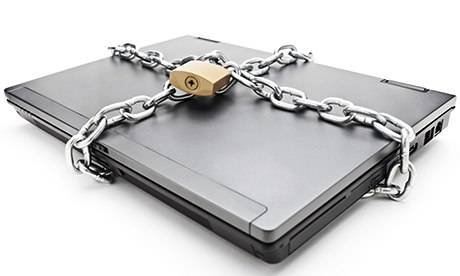Due to the populartiy of our last article on some of the misconceptions of computer viruses and steps to avoid them, below are 3 more essential tech security steps you can teach your employees.
Think about your office and the people you have sitting behind the
computers. Or think about your remote workforce in their home offices
or on the road with their laptops and mobile devices gripped firmly in
their hands. Whether you realize it or not, all of these workers play a
vital role in protecting your company from a security breach.
You may feel pretty safe and secure with all of the latest and
greatest security innovations installed, but if your employees don’t
adhere to safe computing practices and use the technologies properly,
you may be at risk, even more than you think. Many small businesses
don’t have an IT staff so it takes time and training to get employees to
maintain data security.
Here are some tips to ensure that your work force is ready to defend your business and its valuable data.
1. Email Responsibility: The level of
sophistication in targeting individual email accounts has become even
more threatening by hackers and scammers. How many times have you
received an email trying to get you to click on this or that? One
simple click can expose business and personal information without your
employees even knowing they have done anything wrong.
E.D.S.C.B. to protect your valuable business information:
- Exercise judgment before opening email attachments. Suspicious emails or email attachments should not be opened.
- Disable the option to automatically download attachments. As a
convenience, some email programs will offer automatic download, but if a
harmful attachment comes through, it can lead to big trouble.
- Scan attachments with antivirus software before opening or downloading to your computer.
- Complex email passwords. Include upper and lower case letters,
numbers and punctuation marks or other symbols to make passwords more
complex.
- Beware of any attachment with an “.exe” filename extension, which
may begin executing a program as soon as the attachment is opened.
2. Wireless internet connections merit caution:
Wireless internet connections are a remote worker’s
best friend. But public wireless hotspots can be a cybercriminals
playground when open networks don’t encrypt data, emails passwords or
other information. Remind your employees when they have the choice
between a secure wireless connection, which will require a password, and
a public hotspot, they should always choose the secure connection.
However, there will be times when employees may have to use a public
hotspot Therefore, they should know how to make sure their firewall is
on. They should also know how to disable file and printer sharing and
how to make their folders private.
Manage these tasks through the computer’s System Preferences or
Control Panel, where the internet, user settings and security can be
reviewed and adjusted. If you need advice on managing these tasks, go
to your computer’s help and support index.
Another option you can utilize to safeguard data is by protecting it
on a corporate network or in the cloud. There are numerous cloud
storage options for small businesses.
3. Use smartphones conscientiously:
Employees commonly do work related tasks from their
personal mobile devices, which opens new opportunities for security
breaches.
Consider developing a Bring Your Own Device (BYOD) policy that
includes parameters on how and when employees can use their personal
mobile devices for work purposes. Make sure your policy includes
specific guidelines for smartphone security, like a password policy,
list of supported devices and others that are not allowed to be
connected to the network and a protocol for installing applications.
These can become easy entryways for malware if not attended to properly.
A lost or stolen smartphone can also open up an opportunity for a
data breach. You can require your employees to use tracking services
offered by carriers like AT&T or Verizon to find the location of
lost devices, remotely lock them or erase data. For more assistance in
developing a BYOD policy that’s right for your business, consider
getting guidance from a local IT provider or expert.
Read the full article here: http://blog.computerservicenow.com/posts/2013/03/06/teach-your-employees-3-essential-things-about-tech-security/
For more information on anything you have read in this article or about any IT related issues, contact the IT Support Experts at Click Networks today. Call us on 0141 530 9116 or visit our website:
http://www.clicknetworks.co.uk





